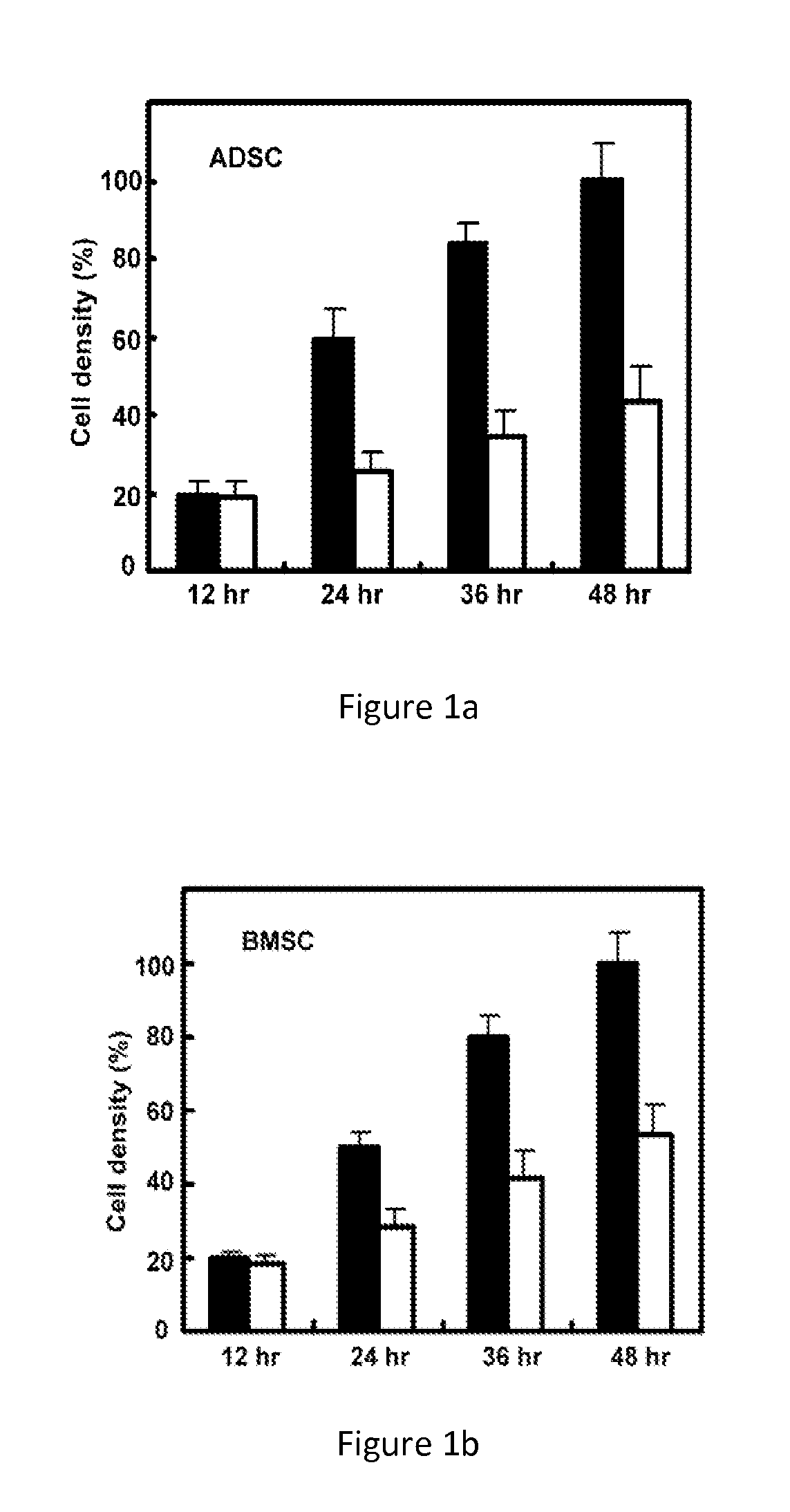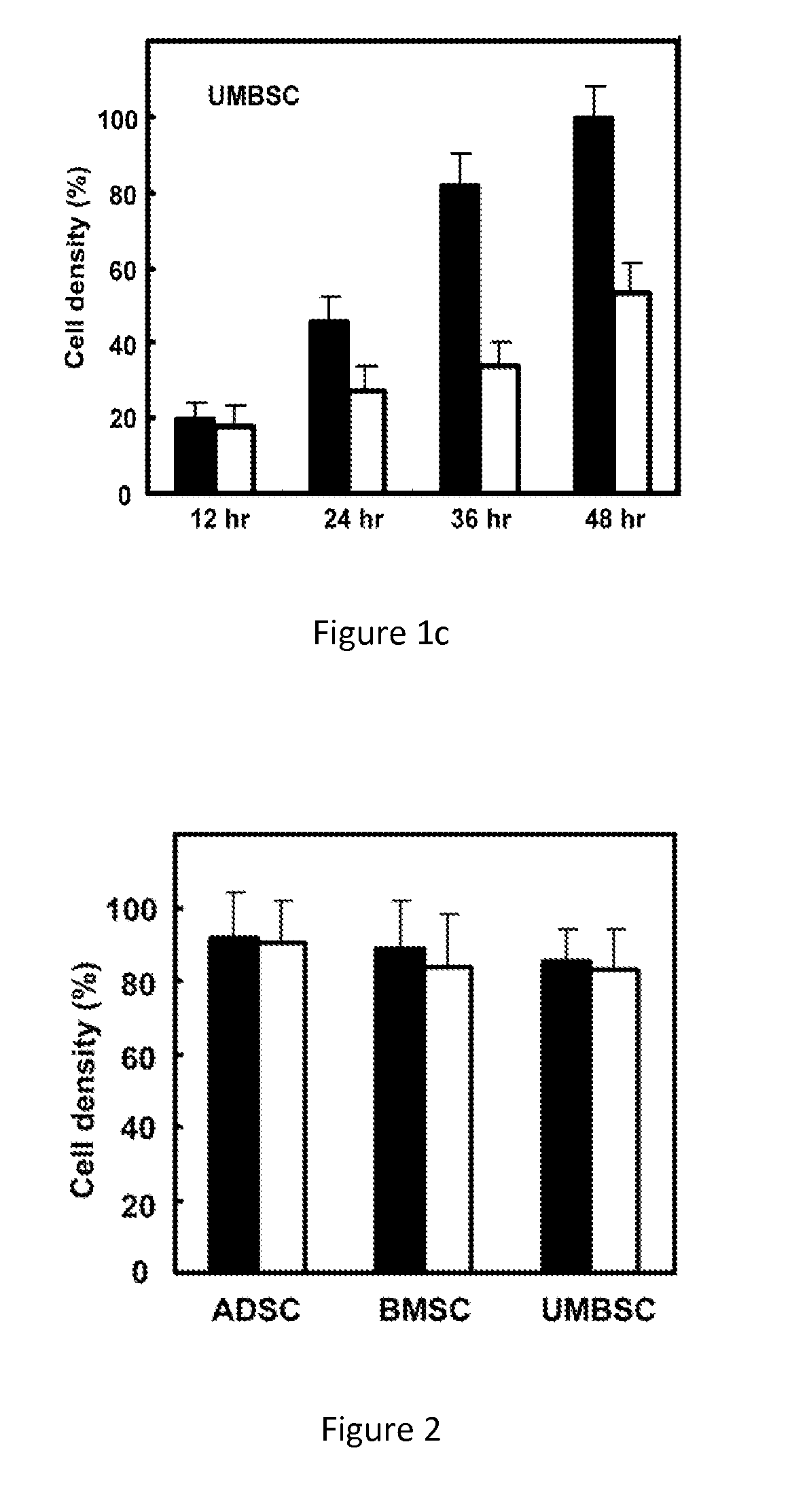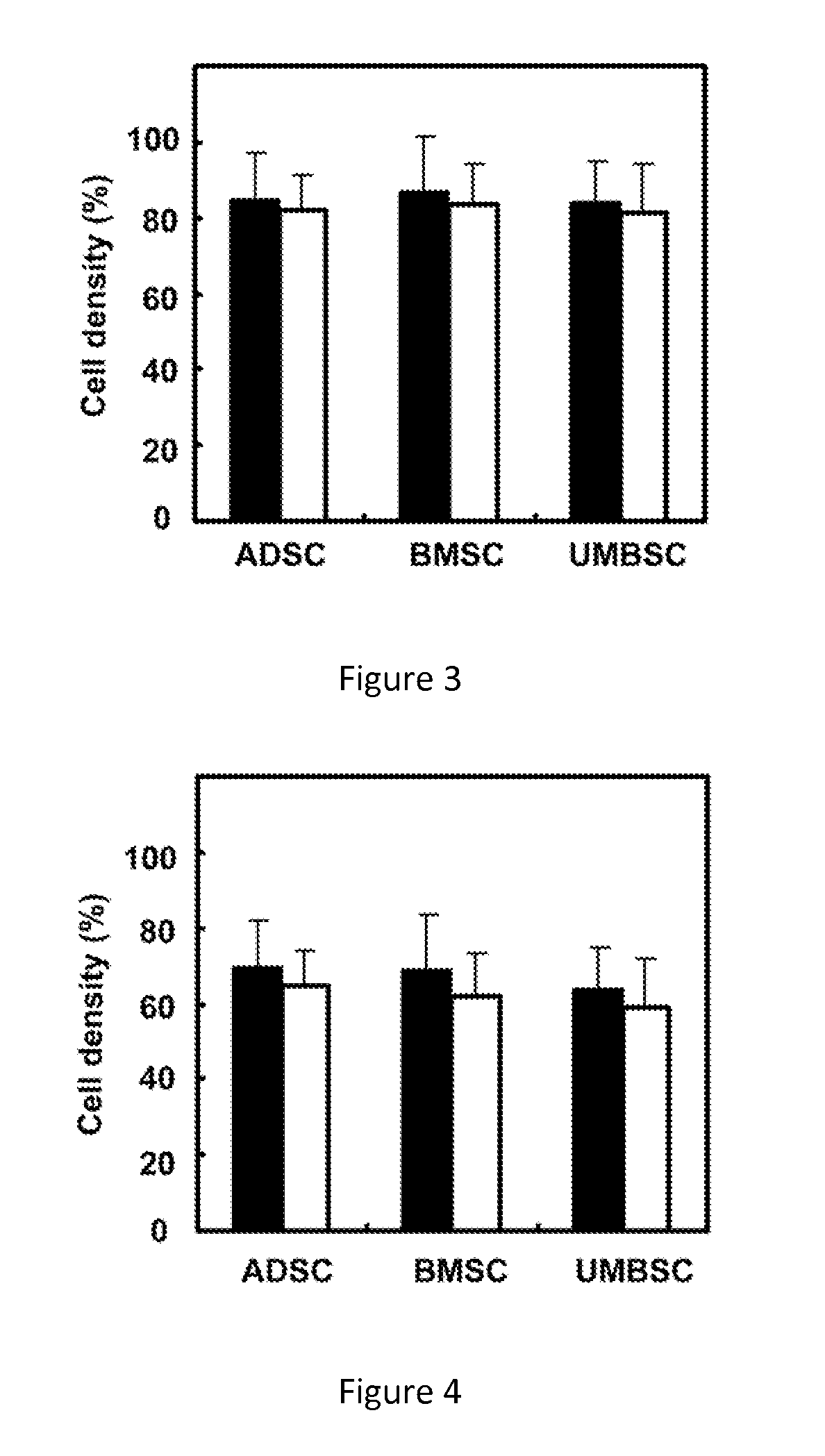Stem cell culture medium and its applications as well as a stem cell culture method
a stem cell culture and medium technology, applied in the field of cell culture, can solve the problems of limiting clinic applications, affecting the reproducibility of different bovine serum batches, and reducing the differentiation potential of functional cells, so as to proliferate stem cells, and increase the proliferation rate of stem cells
- Summary
- Abstract
- Description
- Claims
- Application Information
AI Technical Summary
Benefits of technology
Problems solved by technology
Method used
Image
Examples
embodiment 1
Acceleration of Stem Cell Proliferations
[0043]Routine culture medium formulas for stem cells are: DMEM / F12 basic culture medium, 10% fetal bovine serum (FBS). In order to compare and check up the effects to proliferation rate of stem cells cultured in the said medium described in the present invention, human stem cells derived from three tissues, lipid, bone marrow and umbilical cord (ADSC, BMSC, UMBSC) are selected, to execute the cell culture experiments in vitro.
[0044]Cell inoculation density is controlled in between 10-20%. Before inoculation, culture dishes are processed with cell adhesion promotion materials for 2 hours in room temperature, or overnight when kept in 4° C. After inoculation, add culture medium in and start cell culture (37° C., 5% CO2). Measure the cell density every 12 hours by MTT method. Test results are shown in FIGS. 1˜3, the stem cells cultured in the medium described in present invention (solid cylindrical) showed a more rapid proliferation speed than th...
embodiment 2
Analysis of the Differentiation Potential of Mesenchymal Stem Cells into Chondrocytes In Vitro after Proliferations
[0045]In order to check the effects to stem cells differentiation potential after proliferating for 10 generations in the said culture medium as described in the present invention, chondrogenic differentiation experiments are executed after proliferations of the human stem cells derived from three tissues, lipid, bone marrow and umbilical cord (ADSC, BMSC, UMBSC), following the methods described in literatures (Estes B T et al. Nat Protoc 2010; 5: 1294-1311; Awad H A et al., Biomaterials. 2004 July; 25 (16):3211-22; Cheng N C et al., Tissue Eng Part A. 2009 February; 15 (2):231-41). When the stem cells grow to the appropriate density (20-80% cell density), chondrogenic induction medium (DMEM / F12 culture medium with 1% FBS, 10 μg / L TGF-β 1, 50 nM of vitamin C, 6.25 mg / L insulin and 1% double antibody) is added in. Change the solution every day for a total of 2-3 weeks in...
embodiment 3
Analysis of the Differentiation Potential into Adipose Cells
[0046]In order to further check the effects to stem cell differentiation potential after proliferating for 10 generations in the said culture medium as described in present invention, in the current example, adipocytes differentiation experiments are executed after proliferations of the human stem cells derived from three tissues, lipid, bone marrow and umbilical cord (ADSC, BMSC, UMBSC), following the methods of ADSC differentiation into lipid inducing cells and the oil red O staining methods as described in the literatures (Yu G et al., Methods in Molecular Biology, 2011, Volume 702, Part 3, 193-200; Bunnell B A et al., Methods. Volume 45, Issue 2, June 2008, Pages 115-120; Gimble J M & Guilak F. Cytotherapy. 2003, Vol. 5, No. 5, Pages 362-369). Specifically, inducing the stem cells with adipogenic culture medium when their density is around 80%, herein, the adipogenic culture medium formula is: DMEM / F12 medium with 1% FB...
PUM
 Login to View More
Login to View More Abstract
Description
Claims
Application Information
 Login to View More
Login to View More - R&D
- Intellectual Property
- Life Sciences
- Materials
- Tech Scout
- Unparalleled Data Quality
- Higher Quality Content
- 60% Fewer Hallucinations
Browse by: Latest US Patents, China's latest patents, Technical Efficacy Thesaurus, Application Domain, Technology Topic, Popular Technical Reports.
© 2025 PatSnap. All rights reserved.Legal|Privacy policy|Modern Slavery Act Transparency Statement|Sitemap|About US| Contact US: help@patsnap.com



